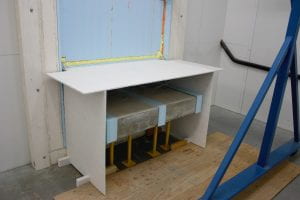CTV Captures Back to School at Paterson GlobalFoods Institute
 The Paterson GlobalFoods Institute (PGI) was recently profiled on CTV Winnipeg as students started their first day of school.
The Paterson GlobalFoods Institute (PGI) was recently profiled on CTV Winnipeg as students started their first day of school.
Watch CTV’s coverage here and here. Read More →

Posted: September 13, 2017
 The Paterson GlobalFoods Institute (PGI) was recently profiled on CTV Winnipeg as students started their first day of school.
The Paterson GlobalFoods Institute (PGI) was recently profiled on CTV Winnipeg as students started their first day of school.
Watch CTV’s coverage here and here. Read More →
Posted: September 13, 2017

Source: Canadian Air & Space Museum.
Posted: August 31, 2017
The World Trade Centre Winnipeg kicks off Small Business Week™ on Monday, October 16, 2017 with a stimulating luncheon hosted by WTC Winnipeg Co-Chair David Angus.
Hear the latest trends in technology, media and telecommunications alongside Manitoba entrepreneurs and business leaders.
Read More →
Posted: August 28, 2017
This October, the Association of University Technology Managers is hosting its 2017 Western Region Meeting at the Santa Clara Marriott located in the heart of Silicon Valley.
Experience excellent content on hot topics, engaging panelists, networking and friendly conversation. This meeting will focus on collaboration, technology commercialization and much more.
Read More →
Posted: August 23, 2017
Do you know of any upcoming, ongoing or recently completed applied research projects that students either participated in or initiated? Please let us know.
We are seeking submissions for our second-annual Applied Research and Innovation Day taking place at the College on Thursday, April 5, 2018. Read More →
Posted: August 16, 2017
The Social Sciences and Humanities Research Council (SSHRC) is introducing a Partnership Engage Grant to better address the short-term needs, challenges and opportunities of researchers and institutions. Read More →
Posted: August 15, 2017
 The International Marketing Intelligence (IMI) service provides timely and targeted research and supporting services to enterprises of all sizes that are actively considering expansion to international markets.
The International Marketing Intelligence (IMI) service provides timely and targeted research and supporting services to enterprises of all sizes that are actively considering expansion to international markets.
Our primary goal is to assist small and medium-sized enterprises commercializing and expanding their sales internationally by providing relevant business and market intelligence in countries and regions of interest. Read More →
Posted: August 14, 2017
 This project focuses on developing cost-effective systems for the implementation of thermally broken concrete slabs for residential mid/high-rise construction.
This project focuses on developing cost-effective systems for the implementation of thermally broken concrete slabs for residential mid/high-rise construction.
Traditionally, concrete balconies in mid/high-rise residential buildings are designed as an extension to the floor slab, constructed as a one or two-way reinforced concrete slab cantilevered out past the building’s exterior wall.
Without a thermal break, the balcony easily conducts heat, causing a significant amount of heat loss in the winter, leaving the floor slab and window-wall assembly considerably cooler than the interior temperature, and resulting in condensation.
If not properly controlled, materials eventually start to degrade, reducing the integrity and safety of the structure, and even compromising the indoor air quality from mold growth.
The first phase of this project started in June, 2016, and is due to complete in August, 2017. The completion of phase two is to be determined.
Posted: August 2, 2017
 Red River College will be home to a new Smart Factory and will expand its Centre for Aerospace Technology and Training (CATT), as part of a $10-million investment over the next five years by Western Economic Diversification Canada. Read More →
Red River College will be home to a new Smart Factory and will expand its Centre for Aerospace Technology and Training (CATT), as part of a $10-million investment over the next five years by Western Economic Diversification Canada. Read More →
Posted: August 1, 2017
 A set of hockey sticks used by members of the Winnipeg Jets and Manitoba Moose have been given new life at the Winnipeg Aboriginal Sport Achievement Centre (WASAC), where they’ll be used by local youths dreaming of becoming the next Mark Scheifele or Jocelyne Larocque. Read More →
A set of hockey sticks used by members of the Winnipeg Jets and Manitoba Moose have been given new life at the Winnipeg Aboriginal Sport Achievement Centre (WASAC), where they’ll be used by local youths dreaming of becoming the next Mark Scheifele or Jocelyne Larocque. Read More →
RRC Polytech campuses are located on the lands of Anishinaabe, Ininiwak, Anishininew, Dakota, and Dené, and the National Homeland of the Red River Métis.
We recognize and honour Treaty 3 Territory Shoal Lake 40 First Nation, the source of Winnipeg’s clean drinking water. In addition, we acknowledge Treaty Territories which provide us with access to electricity we use in both our personal and professional lives.